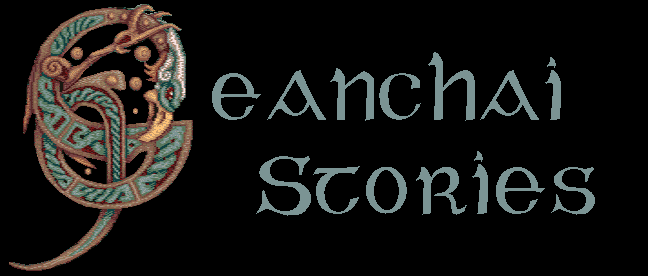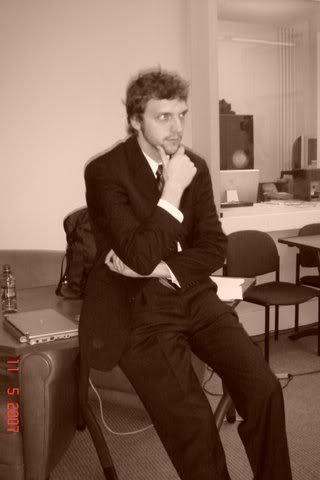...said my mom the first day I told her my internship was in Kosovo. Some of you may know the background of why I'm going to spend 10 weeks in the Balkans, but for those of you just tuning in, here's what's going on. I'm a grad student at the Clinton School of Public Service. One of our requirements for graduation is to work in an international capacity. Due to my penchant for saving the world, I chose to do conflict transformation work in Kosovo. So Monday, May 21st, 2007 I fly from JFK to Skopje, Macedonia (with a quick layover in Budapest) to get to Serbia directly to the north.
Here's what my site sent me:
Brief background to EWI and the GPKT Project
For 25 years the EastWest Institute (EWI), a European-American ‘think and do tank’, has operated long-term projects that aim to reduce tensions and promote dialogue and mutual understanding in critical locations around the world. Since its founding, EWI has committed itself to strengthening dialogue and to building a culture of conflict prevention by entrenching co-operation among and between different groups and communities.
EWI’s cross-border co-operation project in Kosovo, southern Serbia and northern Macedonia has been working since early 2003 works towards the core goals of conflict prevention and community development in the four border municipalities that comprise the ‘GPKT’ micro-region – Gjilan/Gnjilane (Kosovo), Presevo (Serbia), Kumanovo (Macedonia) and Trgoviste (Serbia). In addition to collaborative work with municipalities and central-level governments on policy and economic development issues, the project targets civil society through several cross-border and multi-ethnic Working Groups – the GPKT Education Committee, the GPKT Youth Council, the GPKT Women’s Working Group and the GPKT Media Working Group.
Please visit www.ewi.info and www.gpkt.org for more information.
General note
The current situation of political instability surrounding the final decision on Kosovo’s status will obviously impact on the progression of the GPKT project, currently in the middle of it’s second phase (December 2005 to May 2008). While EWI cannot guarantee that the activities outlined below will be possible, at this stage (May 2007), it appears very likely that the outline of responsibilities should be possible, and that although caution and flexibility will be needed, activities should be able to continue. However, the intern should be prepared to face a situation where this work outline is not possible due to political developments, and in such a situation EWI commits to identifying a new role in consultation with the intern and to supporting a flexible approach in order to help ensure a positive work experience over the internship placement.
A. Internship Outline
At the time of wiring, in May 2007, it seems clear that a combination of the following responsibilities would comprise the intern’s work with the GPKT team over the summer of 2007. Namely, a combination of more general support, which would also provide insight and involvement with varied programme activities, and a more specific personal research project which the intern could ‘make their own’:
§ General support to ongoing activities – assistance in various areas, including:
– Help with report writing and editing. As a native English language speaker, this will be helpful for colleagues on the team, and would include assisting with drafting activity reports of specific events or workshops, and also editing or commenting on longer policy brief type of papers.
– Help with planning and organising policy discussion meetings such as roundtables. This would be part of the process of policy research noted above, and would include input into agenda and participant list development and a role at the event.
– Help with fund-raising. This would include work with the youth working group on fund-rising proposals, part of their efforts at self-sustainability. It could also include input into larger strategy development for EWI in terms of commenting and inputting into concept papers for programme fund-raising.
§ Support to research and integrated development work – there would be a chance for a more specific ‘mini project’ type of activity for the intern. While EWI undertakes or commissions policy research on key issues identified as relevant to the project activities, there is also space for shorter ‘situation analysis’ type of short research pieces, which would aim to collect the facts and indicate potential policy directions for further exploration. Two key potential topics which would benefit from such analysis are:
– Higher education and vocational education in the micro-region – the key dynamics and potentials associated with these issues in terms of conflict transformation and cross-border co-operation.
– Free trade zones – the potential benefits on the ground for local communities versus the upcoming process towards European-associated free trade areas and regional tariff agreements.
For both of these pieces, first steps would be a basic ‘status quo’ info collection, which would then link with data we gathered on labour market and business needs from local businesses in summer 2006, and would be complemented by additional desk research and interviews with key informants. We would also remain open to considering alternative topics of particular personal interest to the intern for similar assessments, although their relevance to ongoing EWI initiatives would obviously have to be considered.
B. Qualifications / Requirements
Required qualifications for this internship would be:
§ Experience (either practical or covered as an area of study) of and/or genuine interest in the thematic area for internship confirmed with EWI (e.g. education, women’s issues, economic development / municipal development, youth, media etc.).
§ Experience and understanding of the sensitivities surrounding multi-ethnic activities and initiatives.
§ Understanding of the political and conflict dynamics in the Balkans region.
§ Common sense, patience and sensitivity
§ Equipment – a laptop and mobile phone (the EWI team can help with purchasing of a local SIM card for project-related communication).
§ For research-related internships: Ability to collect information from a variety of sources (in-person consultation will be important, as well as assessment of a range of written material), analyse and produce intelligent and well-informed conclusions and recommendations. Ability to work without substantial support or supervision.
§ For community-work related internships: Ability to work as part of a multi-national team, and good communications skills.
Desirable qualifications for this internship would be:
§ Experience of thematic area for internship (confirmed with EWI) on a practical level.
§ Experience of the Balkans.
§ Experience of living in field conditions (poor communications/transport, lack of amenities, etc.).
§ Language skills – Serbian, Macedonian or Albanian, would be a huge advantage.
C. Placement
The intern would be based in the EWI office in Vranje (Serbia), have a work space and access to EWI’s office facilities, and the support of the staff member working there; regular travel would most likely be required to Kosovo and Macedonia, and the intern would engage with staff in all three EWI offices (Vranje-Serbia, Gjilan/Gnjilane-Kosovo, and Skopje-Macedonia). The intern’s supervisor would depend on their area of work, but ultimate supervision/management would be provided by Chrissie Hirst, the GPKT Project Manager, who would be on hand for induction and subsequent support - facilitation of contact-building and work planning, discussion of progress and monitoring of delivery, etc.

